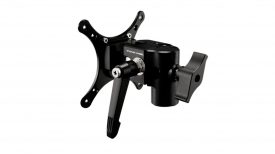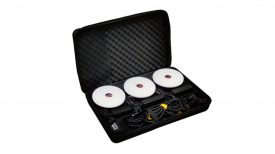A Wider Lens, is the first comprehensive analysis of camera departments done anywhere in the world. It was commissioned by the Australian Cinematographers Society (ACS) and carried out by Deakin University over the course of 2.5 years. The report has revealed that camera professionals face systemic inequality and discrimination in the Australian film and TV industry.

The report found that widespread industry practices driving careers were marked by bullying, harassment, and discrimination for camera professionals with significant negative mental health consequences.
A Wider Lens examines the workforce, the work model, and the work culture of Australian film and television camera departments. The study pays particular attention to how social characteristics such as gender, age, class, ethnocultural identity, sexuality, disability, and caring responsibilities overlap and interact to shape career paths and work experiences.
Findings from industry-reported production data reveal the shocking disparity between men and women performing the role of Directors of Photography (DOPs) on feature film and TV drama shot in Australia (between 2011 and 2019). The study found only 9% were women and 91% were men.
At first glance, these findings may seem at odds with the international success of Australian women cinematographers. Cinematographers such as Ari Wegner ACS, who was nominated for a 2022 Academy Award for Best Cinematography for Power of the Dog, Mandy Walker ACS ASC who was the DOP on Baz Luhrmann’s Elvis, Zöe White ACS who filmed The Handmaids Tale and Bonnie Elliot ACS who was behind the camera on the recent Apple TV+ series, Shining Girls would seem to suggest otherwise. However, despite their success, systemic barriers remain.
A Wider Lens also found that, as budgets grow, the likelihood of a woman DOP being attached to a project decreases. All DOPs on big budget features shot in Australia (over USD 10 million) in the period 2011-2019 were men, and the serious gender pay gap sees men earn significantly more than women for working on the same types of projects.
“This report is critically important in shaping the future of how we work in the Australian screen industry. While it specifically references camera departments, many of its findings are likely reflective of the broader industry and, while its findings are shocking, it also provides a roadmap forward.”
Erika Addis, President of the Australian Cinematographers’ Society
Thoughts
It was shocking to see that 60% of people that were surveyed were afraid to speak up about bullying. Discrimination or harassment in any form has no place in our industry or in society as a whole. It is everyone’s job to make sure this doesn’t take place and if you see something you need to speak up.
It is good to see a cinematography society addressing the issues of inequality, discrimination, and bullying and bringing those findings to the forefront.
Even though this was a study conducted in Australia, I would imagine that in most other countries around the world you would probably find very similar results.
If you want to read the summary of the report you can do so here.
If you want to read the whole report, that is available here.







